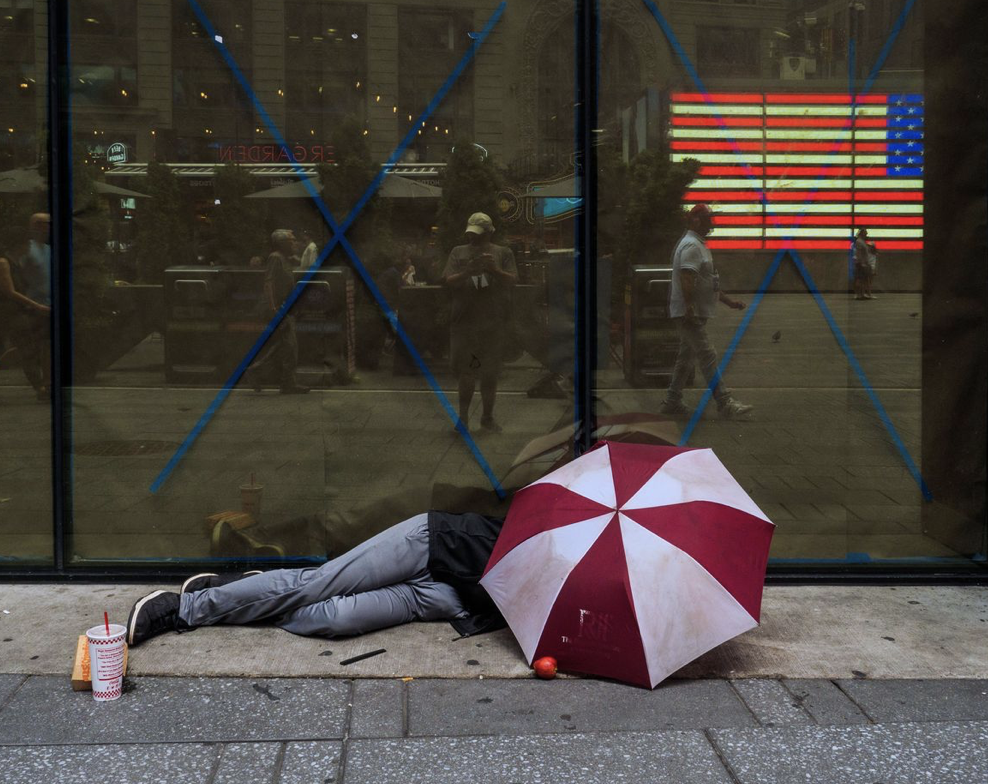By: The Editorial Board – wsj.com – April 21, 2024
The Justices hear an appeal of a Ninth Circuit ruling that makes it hard for cities to enforce public order or get treatment for addicts and the mentally ill.
Like thousands of cities, Grants Pass, Ore., bans camping on public property. Offenses are punishable by a $295 fine and short jail terms for serial violations. Homeless advocates argued in a class action that prohibiting public vagrancy violates the Eighth Amendment’s ban on cruel and unusual punishment. A divided Ninth Circuit Court of Appeals panel agreed.
The majority leaned on the High Court’s fuzzy Robinson (1962) decision, which held that the Eighth Amendment forbids criminalizing the “status” of being a drug addict, though governments could still punish drug use. This legal distinction bore little practical difference. But the Ninth Circuit’s extension of this logic is causing enormous real-world harm.
According to the Ninth Circuit judges, Grants Pass unfairly punished the supposedly involuntary status of being homeless, even though many vagrants rejected housing. One woman did so because her Rottweiler wasn’t allowed in a shelter. Others may refuse to abide a shelter’s minimal behavioral rules. Some simply prefer to live on the streets.
Under the Ninth Circuit’s ruling, homelessness is considered “involuntary” as long as the number of vagrants exceed the available beds. When calculating the latter, the judges excluded religiously affiliated shelters as well as warming and sobering centers. Is requiring the homeless to stay sober to get shelter a constitutional violation?
The Ninth Circuit declined to rehear the case en banc over the dissents of 13 active and four senior judges. Judge Diarmuid O’Scannlain, joined by 14 judges, lamented that the court was “paralyzing local communities from addressing the pressing issue of homelessness, and seizing policymaking authority that our federal system of government leaves to the democratic process.”
His persuasive dissent added that the decision “never meaningfully engaged the text, history, and tradition of the Constitution.” Since the Founding, state and local governments have restricted camping on public property. The text of the Eighth Amendment refers to methods of punishment and doesn’t prescribe what conduct governments may prohibit.
The Ninth Circuit’s sweeping opinion could be extended to an array of purportedly involuntary acts such as kleptomania, pedophile possession of child pornography, and public defecation. State and local governments across the Ninth Circuit stress in friend-of-the-court briefs that its decision has made it harder to keep streets clean and help the mentally ill and drug addicts get treatment. San Francisco Mayor London Breed even led a protest at the Ninth Circuit courthouse.
Those Democratic urban leaders don’t get any sympathy from Illinois, New York and a handful of other progressive states, which lecture that punishing “homelessness tends to exacerbate the problem” because “encampments often offer a level of security, stability, and access to resources that homeless residents cannot find elsewhere.”
These states suggest that local governments should use other means to clean up streets like giving vagrants gift cards to bag their trash and placing them in housing “without the typical strings that trip up those struggling with substance abuse”—i.e., a requirement to stay sober. Cities in California have tried both. Homelessness keeps increasing.
The Ninth Circuit decision handcuffs state and local officials who want to protect their citizens. Voters can hold them accountable for the results of their policies. Not so legislators in robes. That takes a Supreme Court majority that knows the Constitution isn’t a suicide pact.
To read this article in its entirety and to subscribe to others like it, please choose to read more.
Source: The Supreme Court Considers a Judge-Made Right to Vagrancy – WSJ
 Listen Online
Listen Online Watch Online
Watch Online Find a Station in Your Area
Find a Station in Your Area









 Listen Now
Listen Now Watch Online
Watch Online
